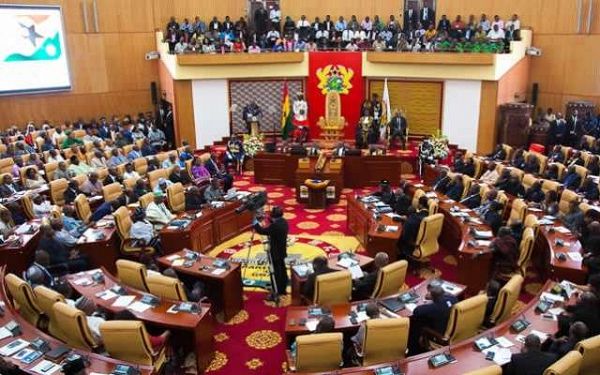
Parliament approves $895.43m Pwalugu contract agreement
Parliament yesterday, by a resolution, unanimously approved the $895.43-million contract agreement for the Pwalugu dam, irrigation, and hydro projects
It followed the approval and adoption of a report by the joint committees on Mines and Energy, Agriculture and Finance by the Plenary.
The projects, which will be financed by the government from the 2020 budget and part of the proceeds of the Eurobond issued last month, will be executed by PowerChina International Group Limited.
The engineering, procurement, and construction (EPC) turnkey contract agreement between the government of Ghana and PowerChina International comes with a $366-million 60 megawatt (MW) hydropower plant, a $474-million 24,000 hectare irrigation scheme, and a $55-million 50MW solar power plant project.
Referral
The Minority had challenged the cost component of the project and the referral of the agreement to the Finance Committee, arguing that since the projects pertained to agriculture and energy, they should be referred to the two joint committees.
The Speaker, based on a request by the Majority Leader, Mr Osei Kyei-Mensah-Bonsu, tasked the two committees on February 11, this year to work with the Finance Committee to deliberate on the contract agreement and submit a report to the House.
Preceding the approval yesterday, legislators from both the Minority and the Majority sides rounded up their arguments on the projects.
Minority Leader
During the debate, the Minority Leader, Mr Haruna Iddrisu, asked why the President had cut the sod for the project last year for work to commence when Parliament had not approved the contract agreement.
“The President was in a hurry to cut the sod, but next time he should be in a hurry to bring it to the House for the necessary approval. He should respect our governance structure that before proceeding to cut the sod for a project, it must go through the necessary approval,” he said.
He called for compensation to be paid to both communities and settlers who would be affected by the development of the dam, particularly women farmers in the Upper East Region.
He said emphatically that both the Minority and the Majority supported the multi-purpose project in principle since the dam would boost agriculture and enhance the livelihoods of the people in communities in the north, particularly in Pwalugu.
“I trust that if the project is successful, it will support all-year agriculture in those areas where worrying poverty levels are dominant,” he said.
He said while the House approved the $993-million loan for the project, questions must be raised about the financing agreement, with its accompanying terms and conditions.
The Minority Leader took a swipe at the President for using his Executive power to offer the contract to PowerChina on a sole-sourcing basis, saying that “this is wrong and not competitive, as it will not give Ghana value for money”.
“We want the government to be guided by previous experiences in similar enterprises. The amount for the Bui Dam was $562 million for the financing of 400MW of electricity. So today, $366 million for 60 MW,” he said.
Touching many lives
Contributing to the debate prior to the approval of the contract, the Majority Leader expressed worry that when the contract agreement came to the House, the Minority considered the projects too expensive.
“My joy today is that all those who have interrogated the documents relating to the projects are not talking from the periphery but agree unanimously that it is a good project that must happen,” he said.
He recounted that the Pwalugu project was initiated by the colonial government, but the real feasibility for the project was done in 1991, noting that it would, indeed, impact many lives.
Mr Kyei-Mensah-Bonsu told the House that a National Disaster Management Organisation (NADMO) report showed that last year alone spillage from the Bagre Dam in Burkina Faso affected over 28,000 people, out of which 15,000 were women and children, with 3,200 houses completely destroyed and 3,700 partially destroyed.
Game changer
He indicated that on a yearly basis the cost of the flooding was in the region of $6.9 million, hence the construction of the Pwalugu Dam, which would control flooding, to save the country $6.9 million annually.
He added that the irrigation facility would unlock the agricultural potential of the northern Savannah zone and become the largest irrigation scheme in the country.
Mr Kyei-Mensah-Bonsu indicated that the project was expected to facilitate the cultivation of 3,000 hectares of tomatoes, 10,000 hectares of rice and 12,000 hectares of sugar cane, which would lead to the construction of a new sugar factory, creating jobs for the people and boosting the economy of the north.
“Mr Speaker, this is a real life changer and I believe that all of us must support the construction of the dam to generate power and irrigate farms which will put the land under cultivation to improve the living conditions of the people up north and the citizens of this country,” the Majority Leader said.
